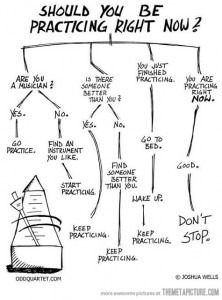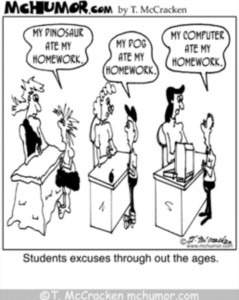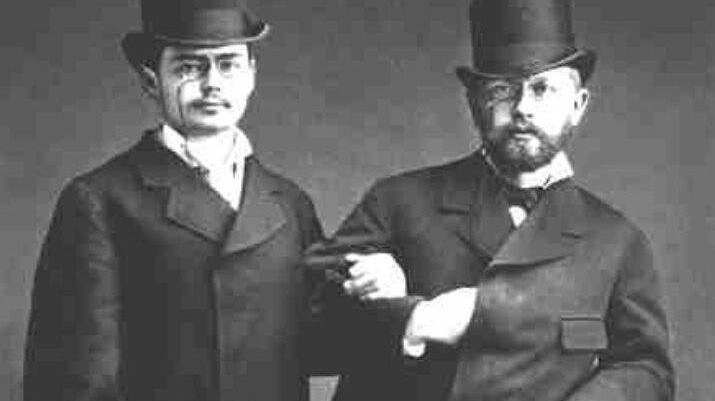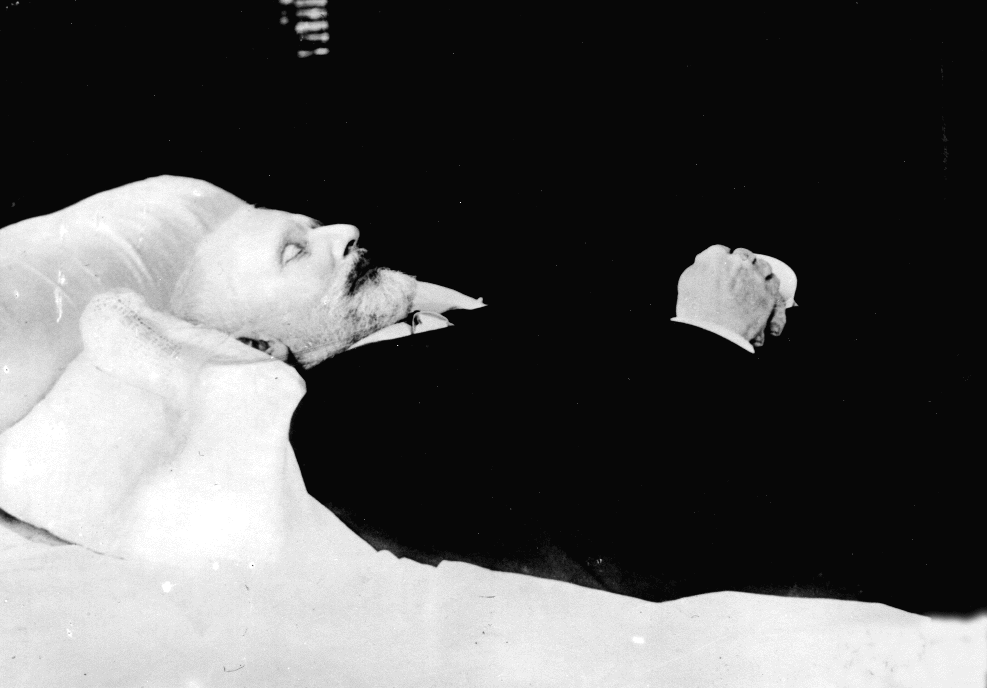It's all about the classical music composers and their works from the last 400 years and much more about music. Hier erfahren Sie alles über die klassischen Komponisten und ihre Meisterwerke der letzten vierhundert Jahre und vieles mehr über Klassische Musik.
Total Pageviews
Tuesday, March 5, 2024
Paul Lincke - Berliner Luft - Placido Domingo
Monday, March 4, 2024
Cabaret | "Money" Musical Number | Warner Bros. Entertainment
Santana's "Besos de Lejos” featuring Gloria Estefan
András Schiff - Bartók - Piano Concerto No 3 in E major, Sz 119
Béla Bartók - Evening in the village (Este a székelyeknél)
Sunday, March 3, 2024
Santana IV - Black Magic Woman [2016]
I LOVE PARIS (Cole Porter) – Tatiana Eva-Marie & Avalon Jazz Band
Saturday, March 2, 2024
Franz von Suppé - Leichte Kavallerie - Franz Welser-Möst
When (vocal) Classical Music gives you goosebumps!
Friday, March 1, 2024
40 FINGERS - Libertango by Astor Piazzolla LIVE
 / 40fingersofficial
/ 40fingersofficial
 / 40fingersguitarquartet
40 Fingers Management: info@vignapr.it
Original music by Astor Piazzolla, arranged and played by 40 Fingers
(Matteo Brenci - Emanuele Grafitti - Enrico Maria Milanesi - Andrea Vittori).
Listen to our album on Spotify: https://spoti.fi/2WYFv90
Filmed and recorded live at Cankarjev Dom in Ljubljana, Slovenia
Video by MedVid produkcija
Audio by Matteo Brenci
/ 40fingersguitarquartet
40 Fingers Management: info@vignapr.it
Original music by Astor Piazzolla, arranged and played by 40 Fingers
(Matteo Brenci - Emanuele Grafitti - Enrico Maria Milanesi - Andrea Vittori).
Listen to our album on Spotify: https://spoti.fi/2WYFv90
Filmed and recorded live at Cankarjev Dom in Ljubljana, Slovenia
Video by MedVid produkcija
Audio by Matteo BrenciThe Dog Ate My Music — Excuses For Not Practicing
by Janet Horvath
 The dinosaur ate my homework. The dog ate my homework. The computer ate my homework. Through the ages teachers have heard extremely convincing excuses to not do their work. Dear music pupils: Don’t tell me you’ve practiced when you haven’t. I can always tell.
The dinosaur ate my homework. The dog ate my homework. The computer ate my homework. Through the ages teachers have heard extremely convincing excuses to not do their work. Dear music pupils: Don’t tell me you’ve practiced when you haven’t. I can always tell.
My parents were both musicians. My father set the standard for practicing. He would slavishly prepare his orchestral music week after week. I remember that he practiced Beethoven Symphony No. 8, which has a difficult triplet passage in the cello part in the Tempo di Menuetto movement. (It is often inaudible, covered by a gorgeous horn solo, but you can hear it at 3:07 in the link below.) He went over and over the passages with a metronome, starting ever so slowly, then inching the speed up. Both of my parents made sure I practiced properly. Music is more audible than homework so I couldn’t fake it. The piano was in our living room and while my mother, a quintessential piano teacher washed the dinner dishes, she’d listen critically. “COUNT! One–and–DA, Two–and–DA!” she’d bark.
 There was no escape when I practiced the cello downstairs either. The door had to be open so my father could intervene. He was from the old school and firmly believed in a methodical approach. “What? You play duets? Why aren’t you practicing your scales and etudes? Popper and Grützmacher.
There was no escape when I practiced the cello downstairs either. The door had to be open so my father could intervene. He was from the old school and firmly believed in a methodical approach. “What? You play duets? Why aren’t you practicing your scales and etudes? Popper and Grützmacher.
“Play S-L-O-W-E-R. Do it again!”
One thing for sure—no matter how little I practiced there was no getting out of the lesson that week. They wisely understood that even if I had hardly practiced—according to their standard, at least an hour on each instrument every day— playing during the lesson was worthwhile.
The avoidance of practicing is ubiquitous. Students come up with excuses that are so creative they deserve repeating.
Unacceptable Excuses:
“I didn’t practice this week because I couldn’t be bothered.”
“My hands have grown since last week and so I keep hitting wrong notes!”
“Our housekeeper tidied up the music and I couldn’t find it anywhere.”
“I’ve been chewing gum all day and can’t hold the violin today.”
“It sounded much better in the practice room…”
“I sold my instrument to pay for music school.”
“I left my instrument in my other pants.”
“My cat vomited in the piano.”
 Possibly acceptable:
Possibly acceptable:
A friend of mine told me that a new student presented himself for their first lesson with a great excuse—a car ran over his bassoon. (Perhaps it sounded better?)
Another colleague told me about a trumpet student who fell onto his trumpet and crushed it while the teacher watched in horror!
Once one of my students, Clara, came to a lesson with the black, ebony fingerboard hanging, the strings dangling, and flaccid. Looking very sad Clara proffered her hand to show me four cello pegs. The strings must be wound through the pegs to hold the strings at the right pitch. On a blistering summer day she had left her cello in the car for several hours. When she went to retrieve her cello the fingerboard had come unglued, the bridge, which supports the strings, had toppled over, and the pegs had fallen out. “I didn’t know where to take it to have it fixed.”
Though we sometimes have our doubts, students are only human. To be honest, I’ve known several musicians who have left music, bows, endpins, and instruments on car rooftops. Hence Darren’s story: “After my last lesson I put my sheet music on the top of the car. Then I wrestled my cello into the backseat. My mom was in a hurry so I quickly hopped in. We drove off. I remembered the music when we were almost home! My mother was so annoyed. She turned around right away and we raced back to your street. I didn’t know my mom could drive so fast! Do you remember that it was such a windy day last week? Well the music was scattered all over the place. We found only this piece,” and then he showed me one page of his music. The page was covered with muddy tire tracks.
 It’s important for parents to know that some of my best lessons were those for which I hadn’t practiced enough. Lessons were never cancelled. My music teacher used these lessons as an opportunity to practice with me, to isolate the difficult spots, to play slowly, to play hands separately (as in the case for piano lessons.) We would carefully analyze issues:
It’s important for parents to know that some of my best lessons were those for which I hadn’t practiced enough. Lessons were never cancelled. My music teacher used these lessons as an opportunity to practice with me, to isolate the difficult spots, to play slowly, to play hands separately (as in the case for piano lessons.) We would carefully analyze issues:
Was the fingering tripping me up? Did it need to be changed? Were inadvertent accents happening because the bow speed was not smooth and uniform? Was the tempo unsteady? Was I miscounting a passage? Was I being careless with intonation? Was I following all the instructions marked by the composer such as the dynamics, the articulations and the phrasing?
Nothing serves the student better for their future work in music or in any field than learning how to apply oneself and practice effectively. This intentional approach helps the student improve exponentially. Inconsistent practice prevents improvement, but poor, ineffective practice just reinforces mistakes!
Tchaikovsky for Beginners: 12 Pieces to Make You Love Tchaikovsky
by Emily E. Hogstad February 26th, 2024
Pyotr Ilyich Tchaikovsky was born on 7 May 1840 in Votkinsk, a town almost eight hundred miles east of Moscow.
Nowadays he is remembered as music’s quintessential Russian Romantic, and a forebear to giants like Rachmaninoff, Stravinsky, and Shostakovich.

Pyotr Il’ych Tchaikovsky
Today we’re looking at twelve pieces spanning the length of Tchaikovsky’s composing career. Before we jump in, here are some things you should know about him.
- Tchaikovsky wrote music in an era of nationalism:
During his lifetime, artists of all kinds were inspired by their national identities.
Tchaikovsky often found himself caught up in debates about whether Russian composers should focus on creating uniquely Russian music or copying a more Western European style (he preferred the idea of striking a balance between both).
That said, the Russian vocabulary of his work is unmistakable, and it influenced future Russian and Soviet composers for generations to come. - Tchaikovsky was gay. He married in 1877, but it was the most traumatic experience of his life. Six weeks after the wedding, he fled the country to recover. He and his wife never reconciled, but they also never divorced.
- Tchaikovsky suffered from crippling self-doubt. He was enamored by his work one moment, then repulsed by it the next. This emotional seesaw is a hallmark of his works, as well.
- Tchaikovsky was able to write much of his music due to the financial aid of a wealthy woman named Nadezhda von Meck, who pledged to support him…just as long as they never met in person. This unusual arrangement worked well for both parties, and the letters they exchanged became important emotional outlets for each of them.
- Tchaikovsky died of cholera in 1893, supposedly after drinking a glass of contaminated unboiled water, but conspiracy theories have surrounded his death for generations. Some people believe it was suicide or forced suicide, perhaps due to his homosexuality.

Tchaikovsky tomb at the Alexander Nevsky Monastery
If that peek at Tchaikovsky’s dramatic life intrigues you, keep reading. Here are twelve pieces that will make you fall in love with Tchaikovsky:
A 34-year-old Tchaikovsky brought the score to pianist Nikolai Rubinstein as soon as he finished it, looking for feedback. Rubinstein was brutal in his assessment: he hated it.
Tchaikovsky wrote later, “I need and shall always need friendly criticism, but there was nothing resembling friendly criticism. It was indiscriminate, determined censure, delivered in such a way as to wound me to the quick.”
But when the work was premiered in Boston in 1875, the audience loved it. They continue to love it to this day.
You can hear elements in this work that read as Russian, especially the lush sweeping string passages and folk dance rhythms.
Swan Lake (1875-1876)
We don’t know exactly where the story of Swan Lake came from, although it’s possible that Russian folklore was an inspiration.
In this ballet, a prince is told by his mother that he must marry as soon as possible and that a slate of options will be presented to him at a ball the following night. A flock of swans flies overhead. To distract himself from his imminent engagement, the prince embarks on a hunt.

Swan Lake ballet performance
© PortsmouthNH.com
One swan transforms into a beautiful woman named Odette. A sorcerer has enchanted her, and the only way she can return to human form is if someone who has never loved before promises to love her forever. She is then turned back into a swan.
The following night at the ball, the sorcerer arrives with a woman who looks just like Odette. Unfortunately, the sorcerer has transformed his own daughter to look like Odette, and the real Odette is still stuck by the lake. Obliviously, the prince falls in love with the fake Odette.
But when the prince discovers the girl’s true identity, he rushes to the real Odette and apologizes. Unable to break the spell, the two decide to die together. They reunite after death.
A variety of alternative endings exist, too, but the story is always secondary to Tchaikovsky’s dramatic music.
It’s easy to see why Tchaikovsky poured his heart and soul into this project. It touches on his love of dance and drama, tapping into an unrestrainedly emotional Russian style of writing. It also reflects the despair of a man being forced to marry, and the tragedy present in doomed love.
Slavonic March (Marche slave) (1876)
In 1876, an organization called the Russian Musical Society commissioned a piece from Tchaikovsky to be played at a benefit concert for wounded Serbian veterans.
At the time, Serbia and the Ottoman Empire were fighting the Serbian-Ottoman wars, in which Serbia was seeking its independence from the Empire. Russia had allied itself with Serbia in the struggle. So this work is a bit of musical propaganda.
Tchaikovsky uses Serbian folk songs in this work, as well as the melody from the Russian imperial anthem God Save the Tsar. He intertwines these melodies with a militaristic musical language that’s heavy on brass, piccolo, and percussion.
Even though the military conflict it was written about is long over, the work remains popular for its heart-on-sleeve bombast.
Violin Concerto (1878)
Tchaikovsky married a pianist named Antonina Miliukova on 18 July 1877. His crush, violinist Yosif Kotek, was one of the witnesses. Six weeks later, Tchaikovsky fled the country alone to come to terms with his disastrous decision.

Pyotr Ilyich Tchaikovsky and Yosif Kotek
In March 1878, he ended up at his patroness’s Swiss estate. Kotek came to visit, and the two struck up a productive creative partnership. With Kotek’s help, inspiration, and feedback, Tchaikovsky wrote his violin concerto in under a month. Today it is one of the most popular violin concertos in the repertoire, and it’s bursting with longing, regret, and joy.
Things didn’t end well between Tchaikovsky and Kotek. Any attraction they had for one another quickly cooled, especially after Kotek began seducing a string of women. But the violin concerto remains as a monument to their deep affection for one another.
Serenade for Strings (1880)
The patroness whose Swiss estate Tchaikovsky had fled to was none other than Nadezhda von Meck.
In 1877, the same year as his wedding, she began sending Tchaikovsky 6000 rubles a month, a hugely generous income that enabled him to quit teaching and focus solely on composition.

Nadezhda von Meck © en.tchaikovsky-research.net
His connection with her helped kick off a new era in his creative life. The Serenade for Strings is one of the pieces from early in their creative partnership.
Tchaikovsky wrote this serenade as a kind of antidote, because he was burnt out from composing another work that he feared was artistically worthless…
1812 Overture (1880)
The work that Tchaikovsky feared was artistically worthless was the 1812 Overture, a work that has become among Tchaikovsky’s most popular.
The overture was commissioned to celebrate the completion of the Cathedral of Christ the Saviour in St. Petersburg, a monument that had been started generations earlier, after Napoleon’s ill-fated attempt to overtake Russia.
The historical event was massive and the cathedral was massive, so the overture had to be massive, too. Tchaikovsky wrote parts for a large orchestra with a huge percussion section, a brass band, pealing church bells, and even cannons, which were supposed to be set off by electric switch.
The scale of the premiere deflated after the assassination of the tzar in 1881. It took until the 1950s for a recording to be made that actually included cannon fire.
Capriccio Italienne (1880)
One of the destinations that Tchaikovsky escaped to while avoiding his new wife was Italy. Tchaikovsky was enchanted by Italy. He wrote to Nadezhda von Meck:
“I have already completed the sketches for an Italian fantasia on folk tunes for which I believe a good fortune may be predicted. It will be effective, thanks to the delightful tunes which I have succeeded in assembling partly from anthologies, partly from my own ears in the streets.”
Even though the purportedly Italian-inspired Capriccio is also very Russian, it works well, anyway. It remains a moving musical portrait of what Tchaikovsky saw as he was recovering and coming to terms with the trauma of his marriage.
Romeo and Juliet Overture (1880)
Another coping mechanism that Tchaikovsky used during this time was reworking music from his past.
In the late 1860s, when he was a young music professor in St. Petersburg, Tchaikovsky fell in love with a magnetic singer named Désirée Artôt. Since Artôt ended up being the only woman in his entire life who Tchaikovsky felt this way about, some people speculate that he may have been in love more with her singing than with her as a person.

Désirée Artôt
The two discussed marriage, but she ultimately married another man…possibly because she heard about Tchaikovsky’s same-sex attraction.
Shattered by the rejection, Tchaikovsky wrote a symphonic poem based on the tragedy of Romeo and Juliet. He struggled with mixed feedback from renowned composer Mily Balakirev. One version was premiered in 1870, and a second in 1872, but neither one stuck.
Fortunately, during his burst of creative productivity in 1880, he finally figured out what he wanted to say with the piece, and reworked it a third time, to great effect.
The love theme was adored by audiences, and it remains cultural shorthand for love, even today.
Orchestral Suite No. 4 in G major “Mozartiana” (1887) Play
Mozart had always been Tchaikovsky’s favorite composer. In 1887, on the centenary of the premiere of Mozart’s opera Don Giovanni, Tchaikovsky came out with this orchestral suite to celebrate his hero.
This work is unusual in Tchaikovsky’s output in that it is based on Mozart piano pieces (as well as a slightly treacly reworking of a passage from his Requiem).
It’s fascinating to hear how this most Romantic of Russian composers treats the delicate work of Mozart, the Classical era’s poster child. It reveals a new side to Tchaikovsky’s interests and musical personality that isn’t often seen.
Symphony No. 5 (1888)
In 1888, Tchaikovsky wrote a note to himself: “Introduction. Complete resignation before Fate – or, what is the same thing, the inscrutable designs of Providence.”
This idea of a symphony exploring the idea of unalterable fate – with all of the darkness, joy, and inevitability that such an idea implies – became a part of his fifth symphony, which opens with a theme that has come to be known as the “fate” theme, and which recurs throughout the work.
He updated von Meck: “I shall work my hardest. I am exceedingly anxious to prove to myself, as to others, that I am not played out as a composer. Have I told you that I intend to write a symphony? The beginning was difficult, but now inspiration seems to have come. We shall see…”
He finished it in a few months, but the premiere was unsuccessful. He updated von Meck, “Having played my Symphony twice in Petersburg and once in Prague, I have come to the conclusion that it is a failure. There is something repellent in it, some over-exaggerated color, some insincerity of fabrication which the public instinctively recognizes.”
However, within a matter of months, having returned to it and performed it again, he changed his mind yet again, writing to his nephew, “I have started to love it again. My earlier judgment was undeservedly harsh.”
Whether you love it or hate its over-the-top emotion, take solace in the fact that at some point, Tchaikovsky agreed with you!
The Nutcracker (1892)
For The Nutcracker, which would turn out to be his last ballet, Tchaikovsky partnered with legendary choreographer Marius Petipa.
Their partnership became extremely granular. Petipa gave measure-by-measure instructions about what he was envisioning for the dance, and Tchaikovsky delivered. Despite this, the colorful score feels incredibly free and organic.
The initial response to The Nutcracker was lukewarm, but future generations came to treasure it. After dancer George Balanchine choreographed a version in New York in the 1950s, it became established as a December holiday tradition, especially in America.
The Nutcracker has become so popular that it has single-handedly helped keep many ballet companies afloat in financially difficult times. Tchaikovsky would no doubt be pleased!
Symphony No. 6 (1893)
Tchaikovsky began the composition of the sixth symphony by creating notes…and then ripping them up.
But he kept trying. In 1893, he wrote to his nephew, “I am now wholly occupied with the new work … and it is hard for me to tear myself away from it. I believe it comes into being as the best of my works.”
What resulted was his darkest music yet, exploring themes of loss and mortality. Notably, it ends on a quiet, tragic note, instead of the much more common flurry of triumph.
Composing the work seems to have excised dark feelings for Tchaikovsky. His brother wrote later, “I had not seen him so bright for a long time past.”
The symphony was premiered in late October 1893. On the Wednesday after its premiere, he went to a restaurant and supposedly drank unboiled water. On Thursday, he began showing symptoms of cholera. On Monday, he was dead.

Tchaikovsky on his death bed
For obvious reasons, the sixth symphony is the most mythologized piece in Tchaikovsky’s entire output. It is difficult to listen to it and not think of the tragic fate that befell its composer a few days after its premiere. This juxtaposition has led to all sorts of conspiracy theories.
Conclusion
There are many reasons why Tchaikovsky is one of the most beloved composers in classical music history.
His music is accessible and affecting. He knew how to spin a melody and how to orchestrate, and he never got caught up in academic arguments at the expense of the music. For him, expressing emotion was always the most important thing, and audiences through the generations have responded to that.
Add in the struggles he faced with depression and self-doubt, and the lifelong struggle of hiding his homosexuality and never being able to be in an open relationship with a man, and he becomes a relatable – albeit tragic – figure for many people.
One thing is clear. As long as orchestral music is played, it seems likely that audiences will be hearing and loving Tchaikovsky.